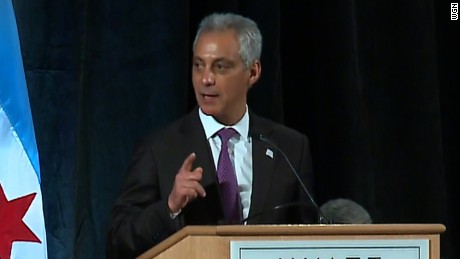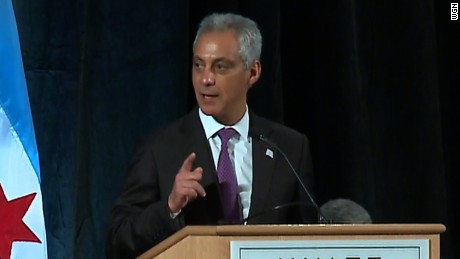Chicago teachers strike deadline nears

(CNN)Public school teachers in the nation’s third largest school district are set to strike Tuesday morning unless an agreement is reached between the Chicago Board of Education and the Chicago Teachers Union by midnight Monday.
It would mark the second time Chicago teachers have walked off the job since Rahm Emanuel became mayor five years ago. In 2012, teachers went on a nine-day strike largely over complaints about pay and benefits and how they were evaluated by superiors.
The teachers’ union also opposed the ongoing closures of hundreds of underperforming and low capacity schools throughout the city, something that has been accelerated under Emanuel. Critics say the closings have disproportionally affected minority neighborhoods.
The contract that ended the 2012 strike expired in 2015.
Who’s threatening to strike and why?
This time around, CTU is representing the city’s roughly 21,000 teachers and is at odds with Chicago Public Schools over pension reform, specifically the amount of money teachers must contribute toward their pensions.
While agreeing to give teachers a raise of 8.75% to base salaries over four years, the city wants to shift the bulk of responsibility for pension payments to teachers and away from the school district. For decades the school system has picked up 7% of the 9% that teachers are required to contribute toward their pensions.
In July, the city barely met a deadline to contribute $676 million to the pension system after a downgrade to junk status of the school’s bond ratings by all three major debt ratings agencies in 2015.
The union also wants the city to spend $200 million to hire social workers and new employees with the goal of reducing class sizes, many of which have ballooned in recent years due to school closings.
How many students/schools are affected?
If classrooms stay closed at the 652 public schools throughout Chicago, the city has created contingency plans to accommodate the district’s almost 400,000 students, who would still be able to show up at their schools.
Nonunion employees including principals, vice principals, district workers and security staff, along with Chicago police, would help provide the bulk of nonacademic supervision.
School breakfast and lunch will still be served and students will be allowed to ride buses and trains for free. Public libraries and the Chicago Park District will also have activities in place for students. Students will not be marked absent if parents choose to arrange their own child care services.
Who is negotiating?
The strike of September 2012 was the first time Chicago teachers had walked off the job in 25 years. Emanuel had been elected mayor the year before with 55% of the vote following the departure of Richard Daley, whose popularity had plummeted before he left office amid city corruption scandals and a city budget deficit of over $1 billion.
With the new mayor not giving in to union demands leading up to a strike vote deadline, CTU President Karen Lewis, in her own first term and known for her outspoken personality and brash language, regularly insulted Emanuel at union rallies and in the media.
The tense negotiations played out between the two leaders and their staff while students missed seven days of school.
Negotiations this year have lacked the name-calling and insults from four years ago, with both leaders seemingly getting along better while each deals with different realities facing their tenure.
Emanuel’s public approval ratings have fallen over the past two years because of the ongoing budget crisis and in the wake of multiple alleged police abuse scandals Critics have accused the Emanuel administration of delaying the release of a police dashcam video showing black teenager Laquan McDonald being shot and killed by a white police officer.
Lewis must attempt to win public favor for a strike from Chicagoans who are more personally aware of the city’s budget woes, thanks to being hit with an $838 million property tax hike earlier this year to help sustain police, fire and teacher pensions.
That, and the sight of thousands of teachers holding picket signs for days, may not go over well with parents scrambling to find emergency child care for the second time in four years.
Darian Martyniuk sends his two children to Waters Elementary School in Chicago’s Ravenswood Gardens neighborhood, where he serves on the local school council. “I think our school is wonderful and I love our teachers. But I think CTU membership doesn’t understand the untenable financial situation and is refusing to publicly acknowledge the need for an obvious needed tax increase,” he says.
Last month, 90% of Chicago teachers voted to approve a strike. If the CTU and its so-called Big Bargaining Team of 40 union members doesn’t reach an agreement with CPS by midnight Monday, teachers will begin picketing at 6 a.m. Tuesday at schools throughout the city.
Read more: http://www.cnn.com/2016/10/10/us/chicago-teachers-strike/index.html
